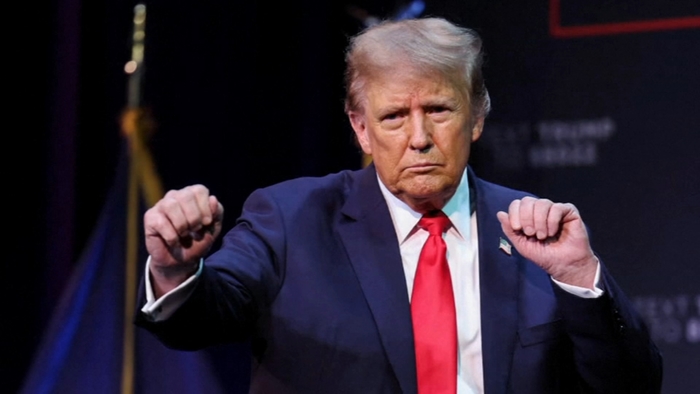The fate of a $106 billion foreign aid spending deal for Ukraine, Israel, and Taiwan, coupled with tightened immigration rules, is in jeopardy due to the involvement of former President Donald Trump.
Trump, who secured victories in both Iowa and the New Hampshire primary, capitalized on voters’ concerns about immigration being a crucial issue in the 2024 race.
During his victory speech, Trump reiterated his stance on immigration, claiming that millions of people are entering the country illegally from prisons and mental institutions. He has consistently used inflammatory language, such as describing immigrants as “poisoning the blood of our country.”
Trump’s recent triumph in New Hampshire is expected to empower him as the front-runner for the Republican presidential nomination, potentially influencing fellow party members to resist compromises on immigration.

In a recent statement on the social media platform Truth Social, Trump emphasized his reluctance to agree to a border deal unless it addresses the perceived invasion of millions of people.
House Speaker Mike Johnson, a Republican, and other congressional leaders engaged in discussions with White House officials regarding a national security funding request, which includes aid for Ukraine, Israel, and the Indo-Pacific. Republicans have linked this aid to stringent border security requirements, leading to divisions within the party.
While many Republicans express support for aid to Ukraine, some oppose what they view as “unrestrained U.S. aid for Ukraine” and demand a clear diplomatic strategy. The involvement in foreign conflicts, particularly in Ukraine and Gaza, has elevated foreign policy concerns among Americans compared to previous years, according to a December poll.
A bipartisan group of senators reached a compromise on an immigration and foreign aid package, but facing resistance from hard-line House Republicans, Democrats accuse them of following Trump’s orders. Immigration remains a contentious issue for the Republican base, and passing a bill seen as a win for Democrats could impact their messaging in the upcoming election.
By tying immigration to President Biden’s foreign policy agenda, Republicans aim to challenge Biden’s claim of restoring U.S. leadership on the world stage. The negotiations primarily focus on limiting parole, a contentious issue with Republicans viewing it as a loophole fueling illegal immigration, while Democrats see it as a necessary tool.
Despite optimism from Democratic Senate Majority Leader Chuck Schumer, there is skepticism that a deal can be reached soon, especially in the current atmosphere of congressional deadlock. The intricate dynamics surrounding the proposed deal highlight the challenges of balancing foreign aid priorities and immigration policy in a politically charged environment.


